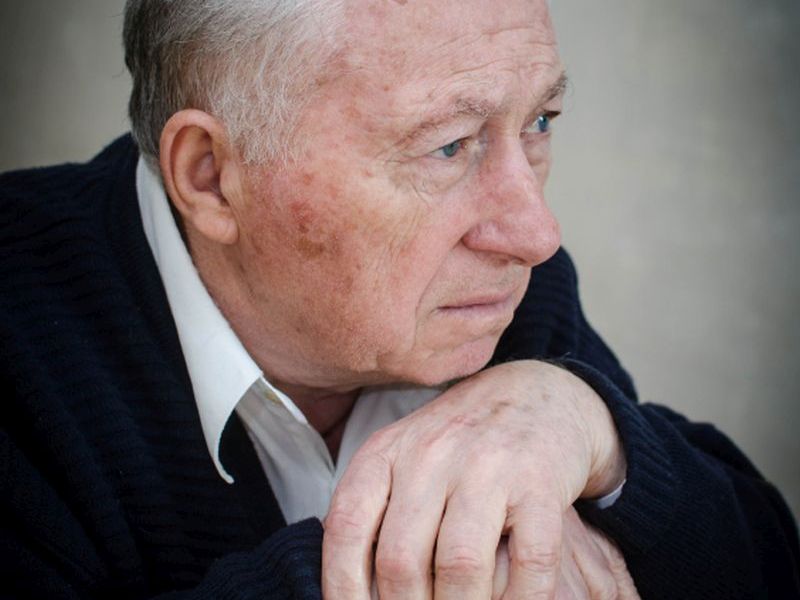

Common Treatment for Early Prostate Cancer May Carry Heart Risk
Hormone-suppressing regimen may raise odds for heart failure, but it brings benefits, too, researchers sayFriday, August 25, 2017

FRIDAY, Aug. 25, 2017 (HealthDay News) -- Because testosterone can help prostate tumors grow, men with prostate cancer are often given hormone-suppressing treatment.
But new research suggests that delivering the treatment in prostate cancer's early stages may, in turn, hike a man's odds for another illness -- heart failure.
The treatment in question is known as androgen-deprivation therapy.
The take-home message from the new study is that "patients with localized prostate cancer should be followed to minimize the health effects of androgen-deprivation therapy on the cardiovascular system," said study author Reina Haque. She's a researcher with the Kaiser Permanente Southern California Department of Research & Evaluation.
Haque's advice? "Patients should consider [heart-healthy] lifestyle changes, and physicians should actively monitor the patient's health for early signs of heart disease," she said in a Kaiser Permanente news release.
A prostate cancer expert who reviewed the study agreed.
"This new data is important in deciding what treatment should be undertaken, if any, for early stage disease," said Dr. Elizabeth Kavaler, a urology specialist at Lenox Hill Hospital, in New York City.
Haque's research team noted that, in recent years, there's been an expansion in use of hormone-suppressing treatment for prostate cancer. The treatment was previously restricted to advanced prostate tumors, but now it's being given to a growing number of men with early stage prostate cancer that has not spread to other parts of the body.
However, the safety and effectiveness of androgen-deprivation therapy for these men hasn't been investigated, the study authors said.
In the new study, Haque and colleagues assessed outcomes for more than 7,600 men with early stage prostate cancer. The investigators tracked the men for up to 12 years, starting when they were diagnosed between 1998 and 2008. The researchers factored in certain heart risk factors -- things such as overweight/obesity, history of smoking, diabetes, high blood pressure or if they required heart medications.
Initially, the men in the study were not undergoing any form of treatment but were being closely watched by their doctor to monitor the progression of their disease. But nearly 30 percent of the men did go on to receive androgen-deprivation therapy, the researchers said. Many of these men were younger than 60.
The study found the men with early stage prostate cancer who did not already have heart disease, but who received hormone-depleting treatments had an 81 percent higher risk for heart failure.
Meanwhile, those who already had heart disease when they received the anti-hormone treatment also had a greater risk for heart rhythm problems, including a 44 percent increased risk of an irregular heartbeat.
These men were also three times more likely to develop "conduction disorder," which occurs when electrical impulses to the heart are interrupted.
One urologist experienced in the treatment of prostate cancer said that "there are two issues we need to look at to understand this report properly."
Dr. Nachum Katlowitz directs urology at Staten Island University Hospital in New York City. He said that, first of all, it's important to remember that "all treatments have risk."
"If androgen-deprivation therapy increases the risk of dying from cardiovascular disease, but decreases the risk of dying from prostate cancer, then we use it," he reasoned. "We watch for potential side effects. And sometimes, in select patients, the risk is greater than the benefit -- so we do not [advise the therapy]."
Secondly, Katlowitz said, the findings come as little surprise, since physicians have long known that the suppression of testosterone can raise a man's odds for common heart disease risk factors.
"To summarize, yes, androgen-deprivation therapy has risk," he said, but so does the option of not providing the treatment in men with prostate cancer. "It is up to the doctor working with the patient to decide if the benefits are worth the risks and side effects," Katlowitz concluded.
Study author Haque agreed.
"The findings allow men with localized prostate cancer to consider the positive and negative effects of androgen-deprivation therapy and discuss it with their physicians," she said. "If they move forward with the therapy, patients should work with their physicians to adjust their lifestyle to reduce the risk of cardiovascular disease."
The study was published Aug. 24 in the British Journal of Cancer.
SOURCES: Elizabeth Kavaler, M.D., urology specialist, Lenox Hill Hospital, New York City; Nachum Katlowitz, M.D., director of urology and male infertility, Staten Island University Hospital, New York City; Kaiser Permanente, news release, Aug. 24, 2017
HealthDay
Copyright (c) 2017 HealthDay. All rights reserved.
News stories are written and provided by HealthDay and do not reflect federal policy, the views of MedlinePlus, the National Library of Medicine, the National Institutes of Health, or the U.S. Department of Health and Human Services.
- More Health News on
- Heart Failure
- Hormones
- Prostate Cancer




























.png)











No hay comentarios:
Publicar un comentario